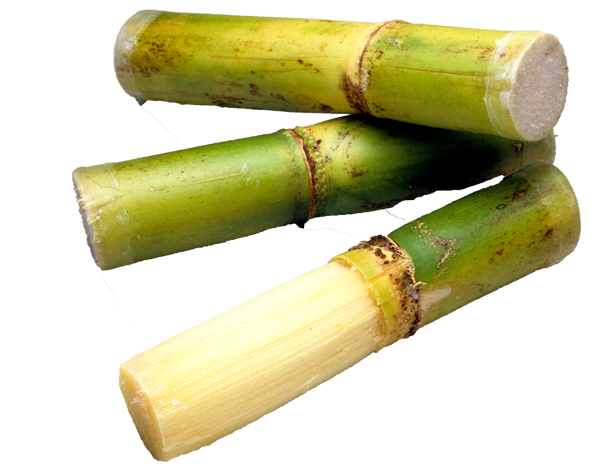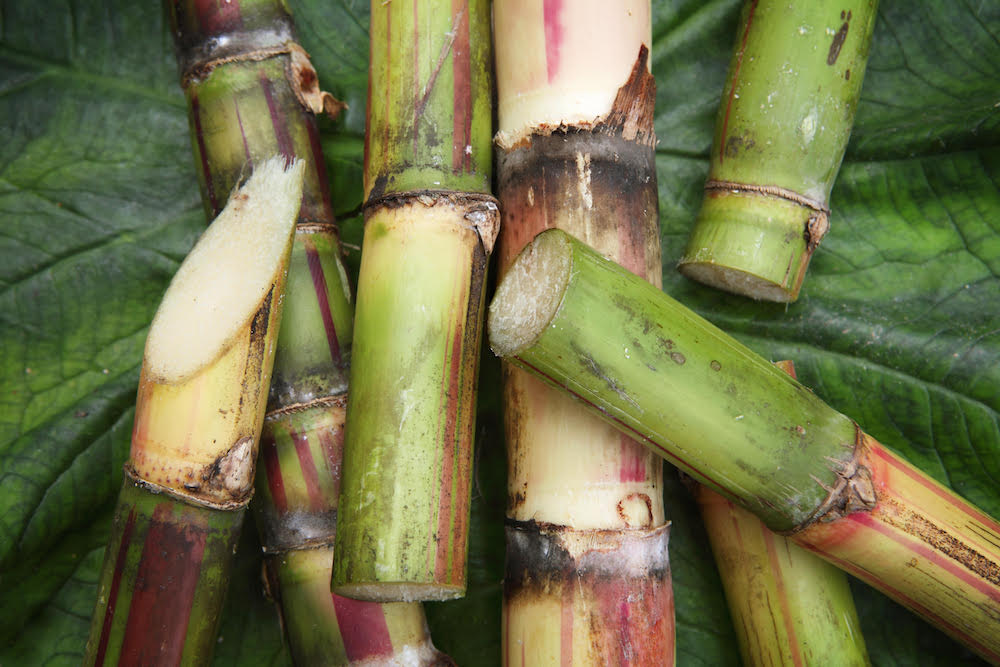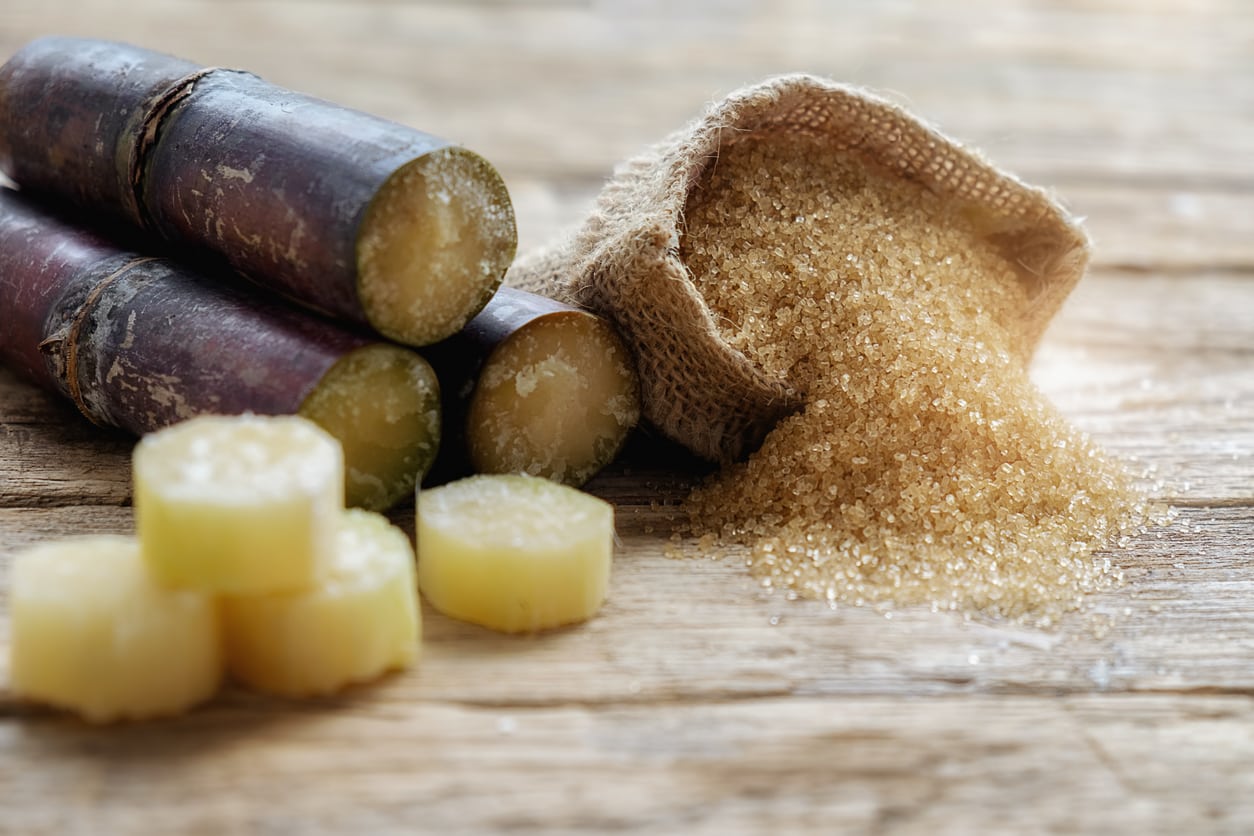The Difference Between Sugar and Cane: Understanding the Basics
The Difference Between Sugar and Cane: Understanding the Basics
Blog Article
Why Walking Stick Sugar Processing Chemicals Are Important for Modern Sugar Refining
The role of cane sugar processing chemicals in contemporary sugar refining can not be overstated, as they are important to boosting both the efficiency of extraction and the total high quality of the last item. Representatives such as phosphoric acid and details flocculants are used to eliminate impurities, causing sugar that not just meets consumer expectations but additionally abides by industry standards. The effects of these chemicals expand beyond high quality, touching upon market dynamics and environmental factors to consider. sugar and cane. This raises essential concerns concerning the sustainability of such practices and their effect on the future of sugar manufacturing.
Role of Handling Chemicals
The efficacy of walking cane sugar handling hinges significantly on the tactical application of processing chemicals. These chemicals play a critical role in enhancing the efficiency and quality of sugar removal and refining. From the first phases of juice extraction to the final filtration actions, processing chemicals help with various crucial operations.
In the extraction phase, chemicals such as phosphoric acid and calcium hydroxide are utilized to maximize the explanation process, aiding to get rid of impurities and suspended solids from the walking stick juice. This not just enhances the yield but additionally ensures the clarity of the final item. Furthermore, representatives like flocculants help in the quick settling of impurities, thereby enhancing the total process.
As the processing developments, chemicals are used in decolorization and condensation stages. Activated carbon and ion exchange resins offer to eliminate color and odor, ensuring that the polished sugar meets consumer top quality criteria. Eventually, the duty of processing chemicals expands beyond functional performance; they significantly impact the sensory qualities of the last product, contributing to market competition. Therefore, the precise selection and application of these chemicals are important for accomplishing optimal end results in cane sugar processing.
Trick Sorts Of Chemicals
Cane sugar processing depends on a selection of vital chemicals that facilitate each stage of production. These chemicals play necessary roles in clarifying, lightening, and purifying the sugar removed from walking stick.
One primary category of chemicals consists of flocculants, such as polyacrylamide, which aid in the information process by promoting the aggregation and settling of impurities. In addition, calcium hydroxide is frequently utilized to neutralize level of acidity and aid in the removal of non-sugar parts.
Bleaching representatives, such as activated carbon and sulfur dioxide, are made use of to decolorize the syrup, leading to a more clear end product. These chemicals aid get rid of shade compounds that may affect the sugar's appearance and marketability.
In addition, phosphoric acid acts as a pH regulatory authority during the handling phases, ensuring optimal conditions for the enzymatic activities involved in sugar extraction and filtration.
Other crucial representatives consist of edta (ethylenediaminetetraacetic acid), which chelates steel ions that can militarize undesirable reactions, and sodium hydroxide, which helps in pH control throughout the refining procedure. Jointly, these chemicals boost efficiency and make sure a high-quality walking cane sugar item.
Advantages for Sugar Top Quality
Often neglected, the usage of particular processing chemicals dramatically enhances the general quality of cane sugar. These chemicals play a crucial function in refining processes, making sure that the final item fulfills stringent sector requirements for pureness and preference.

Additionally, processing chemicals aid in accomplishing a consistent granulation and appearance, which are essential for customer acceptance. By controlling the condensation process, these chemicals make certain that the sugar crystals form evenly, causing an extra enticing product that liquifies well in numerous applications.
Moreover, the use of these chemicals can improve the shelf life of walking stick sugar by minimizing dampness absorption and microbial growth. Overall, the critical application of processing chemicals is important for supplying top quality walking stick sugar that fulfills consumer expectations and industry demands.
Environmental Impact Considerations

Moreover, the energy-intensive about his nature of sugar refining, worsened by chemical use, frequently results in enhanced carbon discharges. This adds to environment change and increases problems regarding the sustainability of current refining techniques. In addition, the sourcing of these chemicals may include methods that endanger biodiversity, such as monoculture farming, which minimizes the resilience of farming communities.

To minimize these influences, sugar refiners are significantly exploring sustainable alternatives and taking on best techniques that decrease chemical usage. Implementing rigorous ecological monitoring systems can help make sure that the refining procedure lines up with ecological requirements and promotes biodiversity. Eventually, a well balanced method that focuses on both sugar quality and environmental stewardship is necessary for the lasting viability of the sugar sector.
Future Trends in Refining
As the sugar industry grapples with the ecological difficulties linked with conventional refining approaches, cutting-edge methods are arising to improve both efficiency and sustainability. One substantial trend is the fostering of eco-friendly chemistry concepts, which prioritize the use of safe, biodegradable handling chemicals. This change not just minimizes ecological influence yet likewise addresses customer need for cleaner manufacturing techniques.
One more appealing advancement is the execution of innovative filtration modern technologies, such as membrane splitting up and adsorption procedures. These methods boost the clearness and quality of the sugar while lowering the volume of wastewater created throughout refining. Furthermore, the assimilation of electronic technologies, including IoT and AI, is transforming operational efficiency by enabling real-time monitoring and predictive maintenance, therefore lessening source waste.
In addition, making use of by-products from sugar refining, such as bagasse and molasses, is gaining traction. These materials can be exchanged biofuels or value-added items, adding to a circular economy within the industry. Jointly, these fads indicate a change towards even more sustainable practices that not only improve functional efficiency yet likewise align with global sustainability objectives, ensuring the future viability of sugar refining.
Conclusion
Cane sugar processing chemicals are vital in modern-day sugar refining, substantially improving the performance and quality of sugar extraction. The critical usage of these chemicals not just improves the purity and flavor of the end product however likewise ensures regular formation and structure. As the sector significantly focuses on sustainability, the adoption of environmentally-friendly handling agents is likely to shape future patterns in refining, eventually causing greater quality items and expanded shelf life for consumers.

Inevitably, a well balanced approach that focuses on both sugar high quality and ecological stewardship is essential for the long-lasting viability of the sugar industry.
Walking stick sugar handling chemicals are vital in modern sugar refining, considerably boosting the efficiency and quality of sugar removal.
Report this page